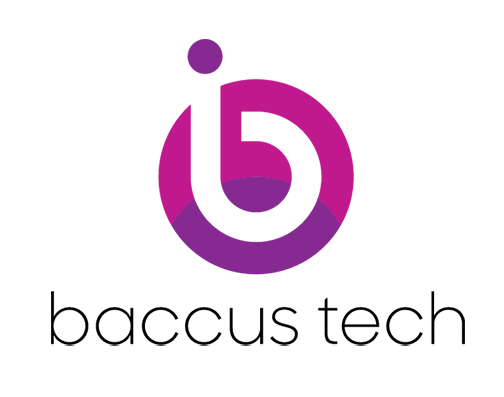Thanks to the latest innovations in web development, there are now more people available in that field than ever before. At the same time, the number of specialists with a high level of expertise in web tech and tools is also growing to coordinate the work of these web professionals.
The project manager is a major actor and at the core of the success of a digital project. But what does his or her role consist of? What skills and aptitudes do he or she needs to have? Let’s have a look at it!
The role of the project manager
The term “Web professionals” combine several different disciplines. And when it comes to presenting the role of each of the professionals, the answers can be subjective and vary a lot according to the role of each one.
The same is true for digital project managers, whose role is to rely on the specific skills of their colleagues and partners, to take the project they’re in charge of and turn it into reality.
In addition to this general understanding of the role of the digital project manager, it should be noted that specificities can be found between them and their role, depending on the type of company in which they’re working, and according to the specifications of the project itself.
Depending on the case and the nature of the project, the role of a project manager may consist of managing interactions between the different teams and contractors working on the project. As opposed to conventional approaches to project management, where everything is established through exhaustive documentation and contractual agreements.
In this case, the digital project manager is in charge of coordinating the operations, lists the requirements of the product, analyzes them, and provides his feedback on their relevance and feasibility.
He also assesses the costs and lead times, as well as proposes solutions for improvement. In collaboration with business experts, he also writes user stories to facilitate the work of the developers.
Besides that, the digital project manager can also be responsible for coordinating the actions to be carried out in the different sections of his team, like approving SEO strategy, overseeing content creation, monitoring community management, and even assists in larger transformations.
He ensures optimal coordination of the work done by each person and team involved. He combines reporting, Gantt charts, the development of buyers persona. He is the Commander in Chief, the sentinel.
Skills required
The project manager plays a strategic and key role in guiding the project. This requires not only versatility but also curiosity.
His intuition must also guide him so that he can understand, evaluate, and anticipate the project’s needs. He is the face of the digital project for his customers or his employers. He must have a perfect knowledge of the technical aspects of the project, to know what to do for each part of it.
In addition, a good digital project manager should ideally have a mix of hard and soft skills. These include basics in programming languages, digital marketing skills, transversal management skills, a sharp mind for analysis and synthesis, and a perfect understanding of the digital world and the innovations and changes that are constantly happening in it.
To do so, he must stay up to date with the latest news in his field. Ideally, he should stay informed of the latest trends in the digital world. He must also be open-minded and have strong attention to detail. More and more, this position also requires a capacity to set up and work according to Agile and Scrum methods.
Considering the strategic role that the project manager plays in the success of digital projects, he must also have strong people skills. These include patience, diplomacy, rigor, reactivity, versatility, and autonomy. It is essential that in his role, the project manager is able to understand the constraints and priorities of each individual operating under his care.
The digital project manager and the hero’s culture
As a digital project manager, it is important to be able to honor your commitments. This is a fundamental quality a project manager must have to ensure the success of the project. This is called “hero culture”.
Obviously, and if he’s the “hero”, the project manager may encounter difficulties, or even fail, in coordinating operations. But he must be able to get back on his feet and manage unforeseen situations autonomously and efficiently.
This is a way to display his leadership and his ability to adapt to the most delicate situations. These situations can lead to the evoking of alerts, which can be interpreted as interference in the leader’s field of responsibility, and as a challenge to his skills.
During project reviews, it is common to find that most projects are successfully completed. For those that experience a slowdown, it is possible to postpone them, increase the initial budget, or even combine these two solutions for the most difficult cases.
From this point of view, the need to anticipate risks to ensure meaningful results seems obvious. Piloting the results in a collaborative tool would then be a well-thought-out solution.
Managing results in a collaborative tool
For the success of operations, it is necessary to anticipate risks to achieve the expected results. To this end, it is mandatory to :
- Share the most practical information possible about progress and difficulties
- Collect information from those who have it
- Have this information available in real-time to optimize the efficiency of the decision-making process.
In this case, it is breakdown into deliverables that makes it possible to monitor the progress of the project. To be closer to the action, they need to be as close as possible to each job that was done.
The progress of the project is then evaluated, based on the number of deliverables completed or validated. In fact, in this approach of results management, the rate of progress of each deliverable is not a priority. Collecting alerts and monitoring the progress and issues on each deliverable to anticipate difficulties as early as possible is what’s important here.
Despite its effectiveness, it must be said that in its implementation, the monitoring of results requires support and collaboration. This approach has the advantage of optimizing the coordination of operations and moving towards more fluid management of large-scale projects.
However, it is important that the digital project manager does not perceive the benefits of collaboration tools as a threat to him. Collaboration tools don’t take away the autonomy he or she has in project management. It’s the opposite, his expertise and skills remain essential for the success of the operations.


